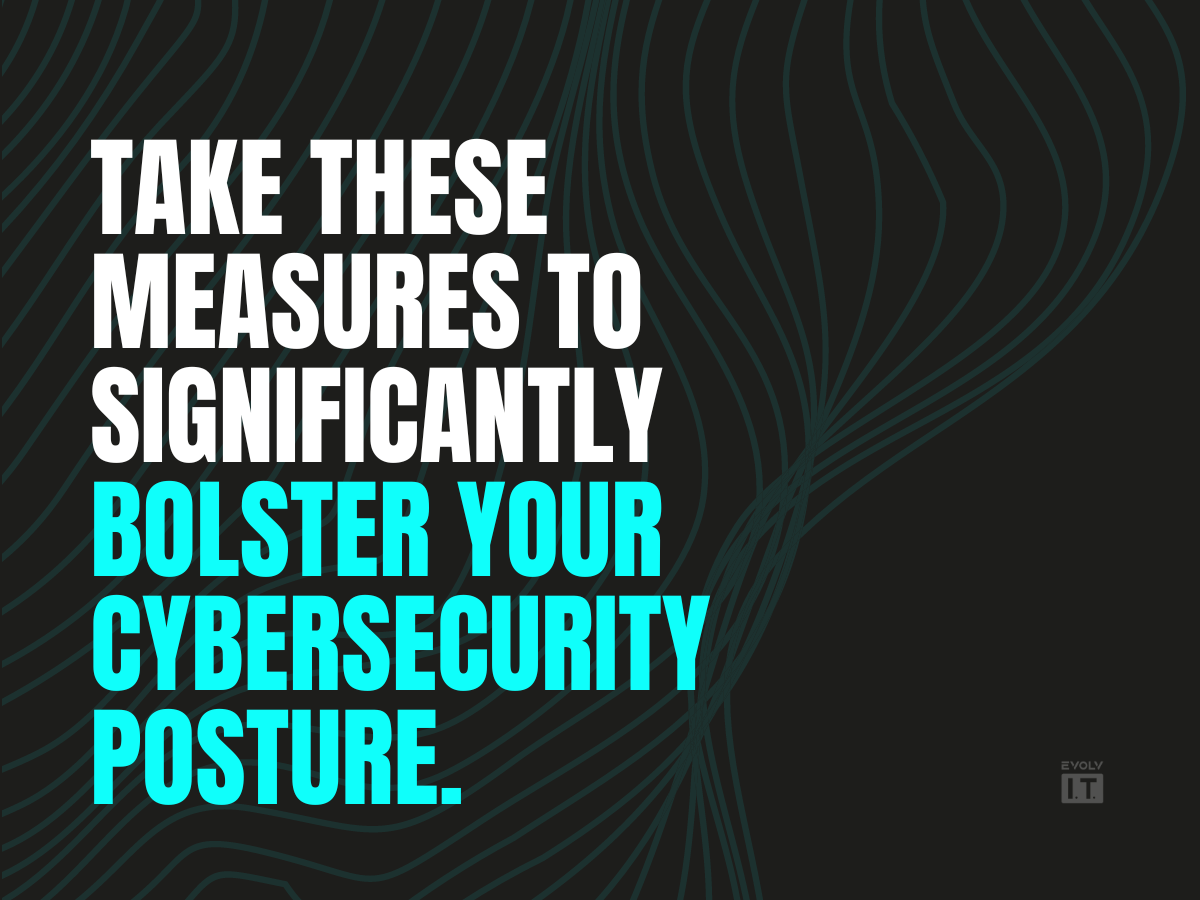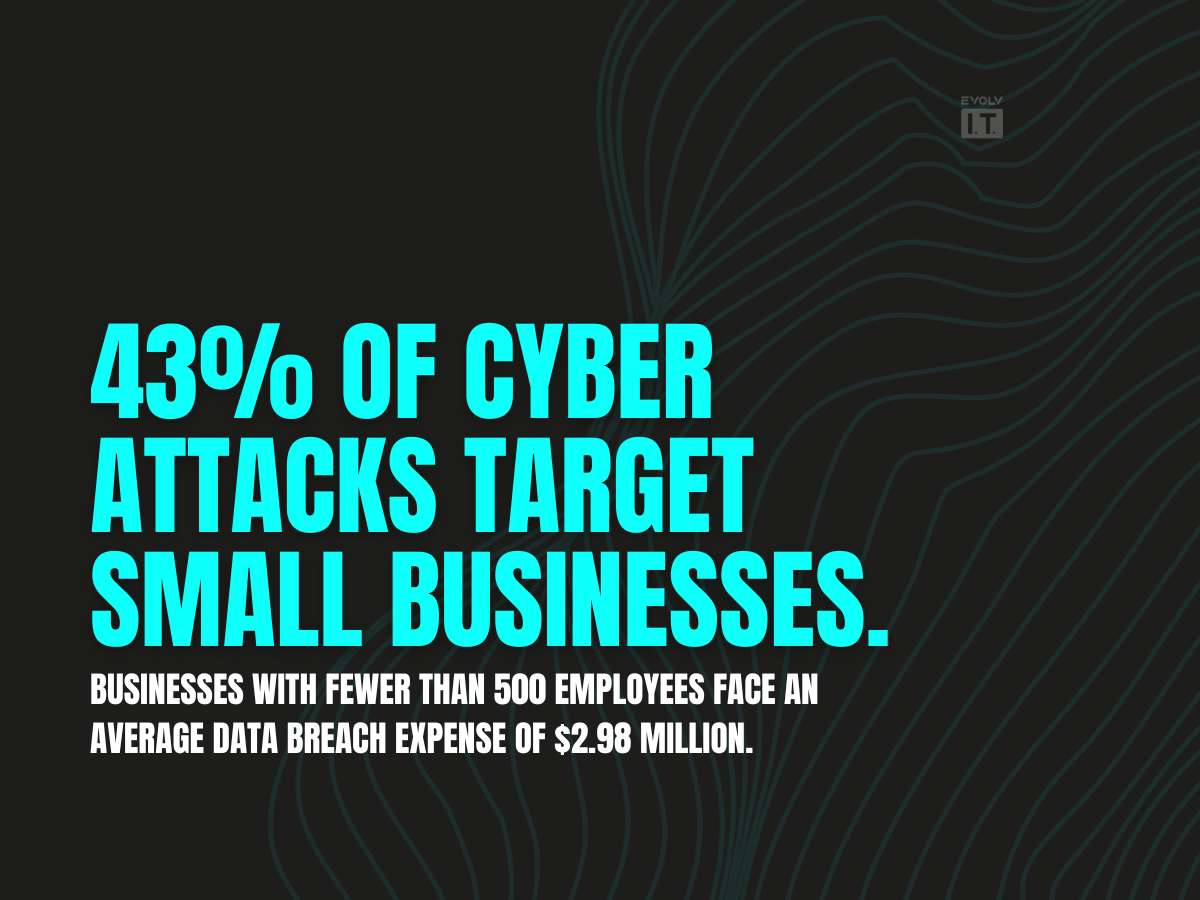3 min read - 1 Oct, 2024
The Perils of Outdated Equipment: Risks to Business Operations
In the fast-paced landscape of today's business world, the importance of keeping...
Read Blog

Small businesses experience unique cybersecurity challenges, including budget constraints, limited resources, and a lack of specialized cybersecurity expertise. Addressing breaches, providing remote work support, and acquiring appropriate technology solutions can be daunting. However, there are actionable measures that small businesses can employ to significantly bolster their cybersecurity posture.

Below, let’s examine small business cybersecurity facts as well as some proactive steps they can take to defend their digital perimeters.
Key Cybersecurity Facts for Small Businesses

1. The Prevalence of Cyber Attacks on Small Businesses
Cyber threats are not exclusive to large corporations. Small businesses are often targeted due to their perceived lack of adequate security measures. According to research, 43% of cyber attacks targeted small businesses.
2. The Cost of Cyber Attacks
Besides the immediate financial impact of a cyber-attack, businesses may face regulatory fines, legal fees, and a significant loss of customer trust. The costs of cyber-attacks on small businesses may be crippling. One study conducted by IBM and the Ponemon Institute shows that businesses with fewer than 500 employees face an average expense of $2.98 million in the event of a data breach, with the cost per compromised record standing at $164.
3. The Human Element
Human error is a significant contributor to cybersecurity breaches and emphasizes the necessity of fostering a security-aware culture within the organization. Regular training sessions to educate employees on recognizing phishing attempts, using strong passwords, and adhering to the company's cybersecurity policies are indispensable. Furthermore, employing simulated phishing attacks can be an excellent way to gauge employee awareness and the effectiveness of training programs.
4. Ransomware
The insidious nature of ransomware attacks and their ability to bring business operations to a standstill highlight the importance of preventive measures. Implementing reliable backup solutions, ensuring that the backups are isolated from the network, and testing them regularly are fundamental steps in creating a resilient defense against ransomware attacks.
5. Phishing
Phishing remains a prevalent attack vector. Cybercriminals use deceptive emails, text messages, and/or phone calls to trick individuals into revealing sensitive information. Hackers then use this information to steal data and extort victims. Educating employees on recognizing and responding to phishing attempts is crucial.
6. Multi-Factor Authentication (MFA)
MFA acts as an additional layer of security, making it exceedingly difficult for attackers to gain unauthorized access even if they manage to steal or guess a password. Implementing MFA across all sensitive systems and accounts is a practical step towards enhancing the security posture.
7. Regular Software Updates and Patch Management
Cybercriminals often exploit known vulnerabilities in outdated software to infiltrate networks. A robust patch management strategy, coupled with regular system updates, is vital to mitigate such risks. This task, although seemingly mundane, is a cornerstone of a strong cybersecurity framework.
8. Data Encryption
Encrypting sensitive data both in transit and at rest acts as a silent guardian. Even in the unfortunate event of a data breach, encryption ensures that the stolen data remains a jumble of unintelligible characters to the attackers.
9. Cyber Insurance
Cyber insurance is a necessary facet of a comprehensive cybersecurity strategy. It provides a safety net, cushioning the financial blow that might arise from cyber incidents. While it does not substitute for robust cybersecurity measures, it adds an extra layer of financial security, enabling businesses to recover more swiftly.
10. Compliance with Regulatory Frameworks
Adhering to cybersecurity regulations, such as the General Data Protection Regulation (GDPR) or the California Consumer Privacy Act (CCPA), is imperative. Compliance not only avoids legal repercussions but also drives the implementation of robust cybersecurity measures.
11. Budget Constraints
Small businesses often have limited funds for cybersecurity infrastructure and services. However, cybersecurity is not a realm where corners should be cut, as the aftermath of a cyber attack can be financially devastating. The average cost of a data breach in the US, as of 2023, equaled approximately $9.48 million. This figure is up from $9.44 million in 2022, and the global average cost per data breach has reached $4.45 million in 2023.
12. Limited Resources
The limited resources available to small businesses extend beyond financial constraints to include personnel and time. Potential solutions include outsourced security services and/or automated security solutions.
Outsourcing cybersecurity tasks to specialized service providers can be a viable option. Managed Service Providers (MSPs) can handle a variety of security tasks, allowing in-house staff to focus on core business operations.
Automating security processes can also significantly reduce the manual workload. Solutions like automated patch management, threat monitoring, and incident response can save time and ensure that crucial security tasks are not overlooked.
12. Lack of Specialized Cybersecurity Expertise
Small businesses may find it challenging to attract or afford in-house cybersecurity talent. However, employee training and education, supported by industry collaboration, can make a significant difference.
Futureproofing Against Cyber Threats
Unlike large enterprises, small businesses can’t afford to build and staff their own in-house, on-premises security operations centers. Yet the risks small business owners face are the same. That’s why growing organizations need to invest in scalable third-party security solutions from reputable providers they can trust.
Here are a few things small business security leaders should keep in mind when considering their security posture against today’s threats:
Evolv I.T. offers advanced protection for your systems and data against an array of cyber threats. As attacks increase, our proactive monitoring services will keep your business several steps ahead, providing you with the peace of mind to focus on core business operations. Our comprehensive cybersecurity solutions include 24/7/365 network monitoring, data backup guarantees, threat detection, employee safety awareness training, and more. We offer 24/7/365 Tech Support and a guarantee to review and prioritize all tickets within 15 minutes, thus avoiding prolonged downtimes that could be detrimental to your business operations.
Sign up for a Free Discovery Call and a Free Network Security Assessment, which provide tailored insights on how Evolv I.T. can transform your company’s cybersecurity defenses. Our support extends nationwide, available both remotely and on-site.
As you go forward, remember: somewhere in cyberspace, an attacker is ready to take your company down. With the right security tools, you can stop them. Partner with cybersecurity experts at Evolv I.T. for peace of mind and the latest technology solutions.

3 min read - 1 Oct, 2024
In the fast-paced landscape of today's business world, the importance of keeping...
Read Blog
10 min read - 1 Oct, 2024
In just eight years, Evolv I.T. has become a top-rated Technology Managed Service...
Read Blog